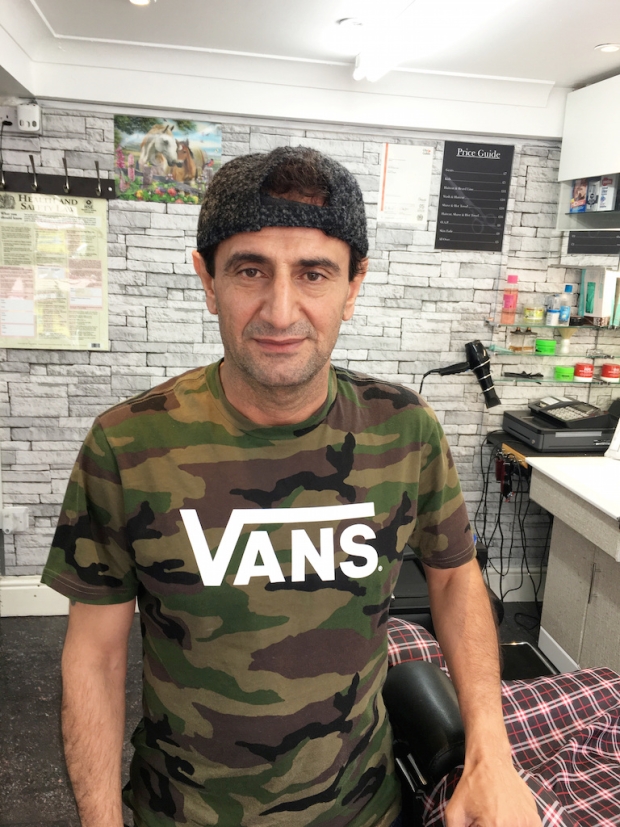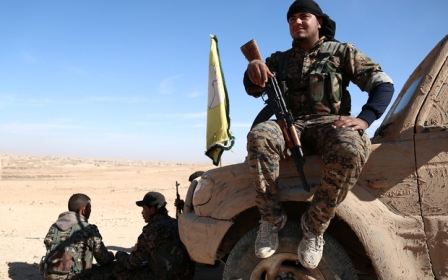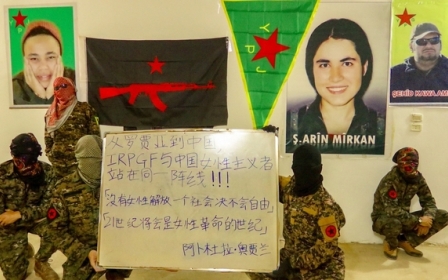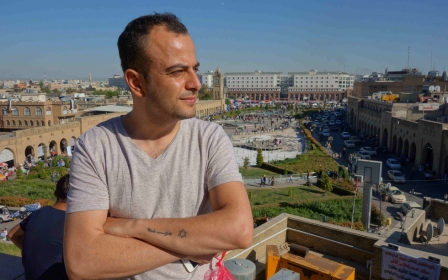YPG barbers: Iraqi Kurd turns UK shop into Syrian militia shrine
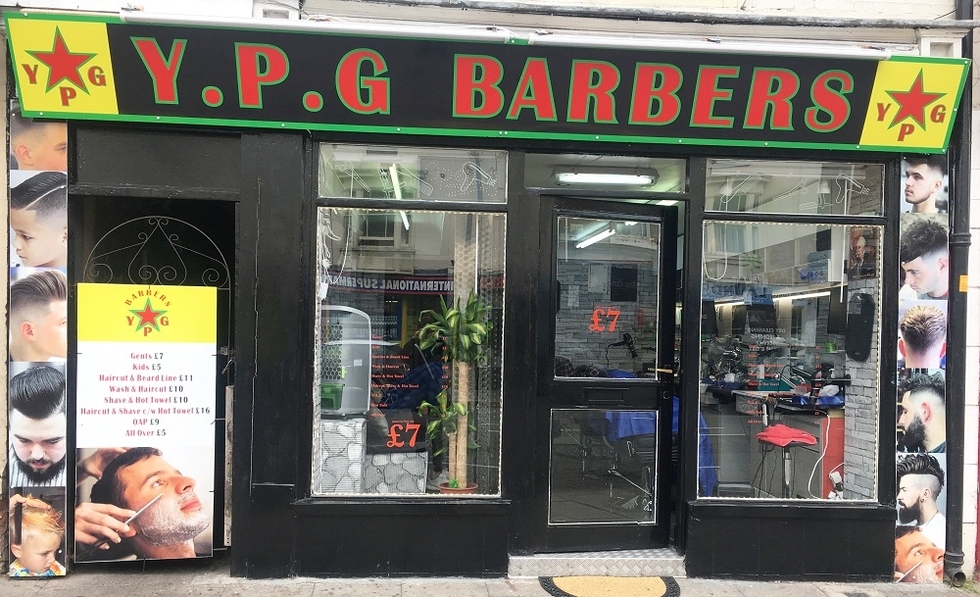
The barbershops of small middle-English cities are not generally known as forums for Middle Eastern politics - but one Kurdish migrant in Lincoln has bucked that trend by renaming his after a Syrian Kurdish militia.
Haji Salih, originally from Iraqi Kurdistan, renamed his shop "YPG", decorating it in the group's colours in honour of their fight against the Islamic State group and Turkish-backed troops in northern Syria.
| |
"I had this barber shop for around two years, and nearly two months ago I changed some decorations and changed the name - it was before 'Barber King' and I changed the name to the 'YPG'."
He told Middle East Eye he supported the YPG in their fight against "terrorist" groups and the high global profile they had given to the Kurdish struggle.
"Before, all the world didn't know the Kurdish people and now, slowly slowly, the world knows the Kurdish people have the Peshmerga, we have the YPG, we have the PKK (Kurdistan Workers Party), it's all because they're fighting the terrorists," he said.
The YPG have controlled much of northern Syria, known to Kurds as "Rojava" or southern Kurdistan, since the collapse of Bashar al-Assad's forces following uprisings against his rule in 2011.
I did have [Turkish customers] but since I changed the sign they are not coming
- Haji Salih
Fighting between the group and IS has catapulted the Kurdish movement into the spotlight and the YPG have become close allies of the US in the campaign against IS.
However, Turkey has long regarded the YPG as an offshoot of the PKK - the militant group which has been in conflict with the Turkish state since 1984 - and fear that the YPG could turn northern Syria into a base for attacks against Turkey.
Haji said that he had so far received mainly positive responses from his customers on the name change.
"The reaction until this moment is very good, not a lot of people talking about it," he said.
"Some older people are talking about it and some educated people, they searched from Google, they know what it is and they like it and nobody's been complaining."
As news of the barber shop's name change spread beyond the usual Lincolnshire gossip circles, pro-Turkish users took to Twitter to voice their concerns.
Lincoln's other Kurdish barbershop, Lincoln Style Barber Shop, also voiced their approval of the name change.
Salih added, however, that he suspected that some of Lincoln's Turkish community were probably not too happy about it, but "they didn't say anything".
"I did have [Turkish customers] but since I changed the sign they are not coming any more for a haircut," he admitted.
Originally from the city of Sulemaniyah in Iraqi Kurdistan, Haji's life under the Saddam Hussein government - before Kurdistan's establishment as an autonomous region in 1991 - was not happy.
In 1984, he was conscripted into the Iraqi army, which was then involved in a brutal war with neighbouring Iran. He deserted shortly after.
"I knew it was bad for me and one day I'm going to be killed because it's horrible fighting," he said.
"I had to hide in my cellar for few months, few years, I didn't go outside - it's a very very bad life."
He fled in 2001, fearing the rise of militant groups, and studied hairdressing in the UK before opening a salon in Lincoln.
Coming from a mixed Jewish-Muslim heritage, his experiences in Iraq left him with a deeply critical perspective on religion.
"I have respect for all religions, I don't hate anyone, but I don't like being controlled, having any religion control me," he said.
Haji has only returned to Iraqi Kurdistan once since he left, for four weeks in 2011, but he still voices concern over the future of Kurds in the Middle East.
He voiced support for Kurdistan's independence, set to be voted on in a referendum in September.
"I think it's the right choice," he said. "I like the idea of being divorced with Iraq because all the regimes, one after the other, are bad for the Kurdish people."
"They won't leave us alone. Turkey, Iran, Syria, Iraq, all of them. We need to be safe, be we need to be separate, we'd like democracy."
Middle East Eye propose une couverture et une analyse indépendantes et incomparables du Moyen-Orient, de l’Afrique du Nord et d’autres régions du monde. Pour en savoir plus sur la reprise de ce contenu et les frais qui s’appliquent, veuillez remplir ce formulaire [en anglais]. Pour en savoir plus sur MEE, cliquez ici [en anglais].


